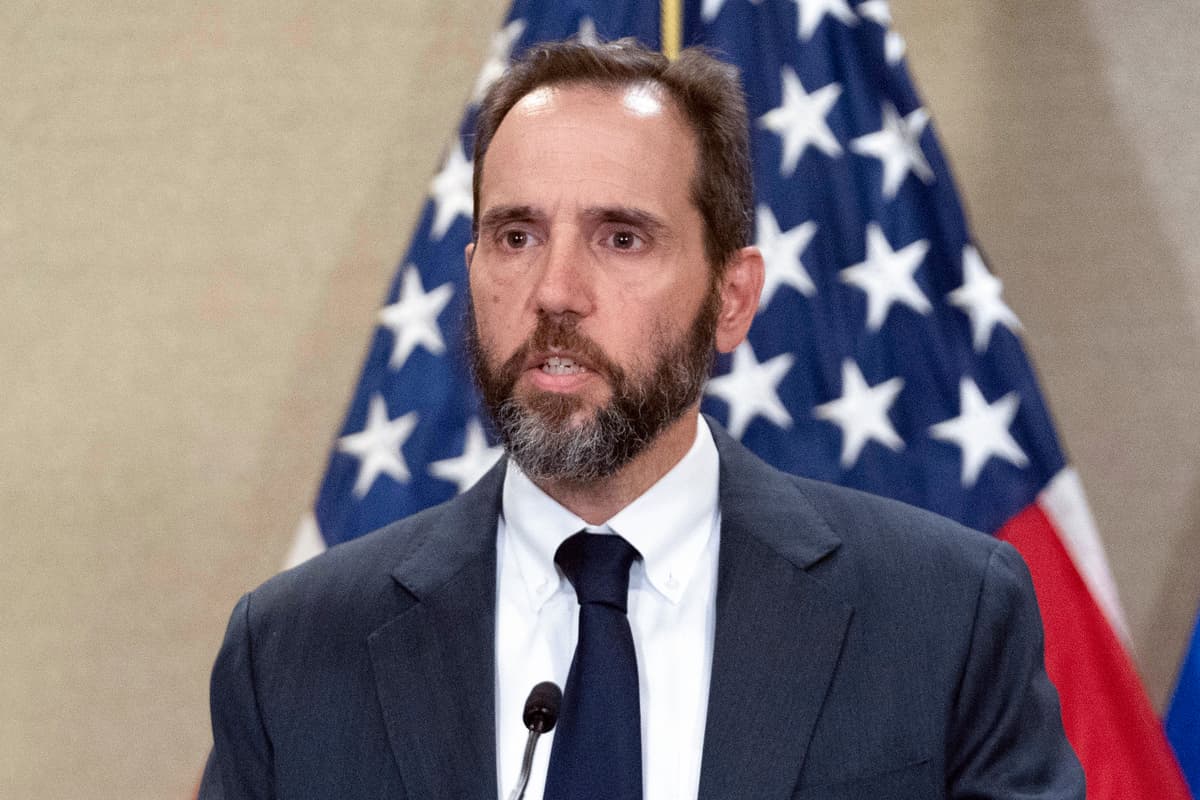Trump To Mount Last-Ditch Effort To Block Jack Smith’s ‘False Hit Piece’ on January 6: Could It Harm His Presidential Bid?
The 45th president has just days to prevent the release of the special counsel’s 180-page case for conviction.

President Trump’s escalating effort to stop Special Counsel Jack Smith’s book-length brief on immunity from seeing the light of day suggests that the opus could dent the 45th president’s re-election prospects — and that could be its goal.
Mr. Smith has secured permission from Judge Tanya Chutkan to file a 180-page brief on presidential immunity, one that his own office calls “oversized.” The special counsel needed that dispensation because his filing exceeds the usual limit by more than 100 pages. Trump opposed that request, and contends that the forthcoming treatise on immunity is precipitous.
Trump on Monday filed his response to Mr. Smith, castigating it as “a new development illustrating the unprecedented and irregular nature of the Office’s approach.” He reckons that the special counsel wants to “quadruple the standard page limits” in the District of Columbia. The former president castigates Mr. Smith’s approach as “fundamentally unfair” and an “unconstitutional prior restraint on President Trump’s ability to respond to their inaccurate assertions while he is campaigning.”
The former president last week filed his own motion in the January 6 case, arguing that “dismissal is required to protect the integrity of the Presidency and the upcoming election as well as the Constitutional rights of President Trump and the American people.” Judge Chutkan has so far denied Trump’s requests to dismiss the prosecution as selective and vindictive and barred after the Supreme Court’s immunity ruling in Trump v. United States.
Trump maintains that the forthcoming immunity door stopper is the result of a “lawless request” that short-circuits the production of evidence that he is owed from the government. He wants immunity to be addressed only once he has that evidence in hand. The 45th president also argues that the “requested 180-page brief would be tantamount to a premature and improper Special Counsel report” and amount to a “false hit piece.”
Trump, in attempting to block Mr. Smith’s brief, invokes the “peculiar public opprobrium” that attaches to the January 6 prosecution as the “election rapidly approaches.” Judge Chutkan, though, has decreed that in her courtroom the “electoral process and the timing of the election … is not relevant.” She added that she is “not concerned with the electoral schedule.”
Mr. Smith’s new and slimmed-down indictment in the election interference case was handed up about 70 days before November’s presidential election. That narrowly cleared the Department of Justice’s self-imposed deadline of levying charges against candidates for office at least 60 days before an election. Mr. Smith’s position is that the policy only applies to indictments, not the full gamut of pre-trial motions — like the immunity brief he is readying.
Prior to the Supreme Court’s ruling in Trump, Mr. Smith urged judges at every level of the federal judiciary to expedite the election interference case on account of a “compelling” public interest. That all-fired rush was stymied when the Nine returned the case to Judge Chutkan for proceedings to determine which of the acts in the government’s indictment were official, and therefore presumptively immune from prosecution.
The special counsel has since pivoted, and now appears to be in little rush. He even requested, and was granted, his own three week delay from Judge Chutkan. The 180-page immunity brief likely amounts to the special counsel’s best opportunity to broadcast his case before the election. The future of this case, as well as Mr. Smith’s Mar-a-Lago one, would appear to depend on November’s outcome. If Trump wins, he could appoint an attorney general to fire Mr. Smith and dismiss the charges. He could also possibly pardon himself.
If Vice President Harris wins and declines to pardon the former president, Mr. Smith would have four — or, possibly, eight — more years to pursue his conviction. That runway might not be excessive, as any decision on immunity handed down by Judge Chutkan can be appealed to the District of Columbia Circuit of the United States Court of Appeals and the Supreme Court. The justices, though, have a 50-page limit on briefs.

